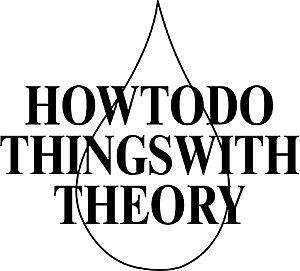2024-2025 FROM CONFLUENCE TO CONFLUENCE ~ Ana Teixeira Pinto's seminar: Evil
SEMINAR 1: DECEMBER 7 & 8 2024
In After Evil: A Politics of Human Rights, Robert Meister argues that the discourse of human rights, which emerged after WWII, is predicated on the acknowledgment that “the past is evil,” but we have changed, we learned from past injustice and will not perpetuate it. The past may be evil but evil will stay in the past: the future won’t be a repetition of it. This means that “unreconciled victims who continue to demand redistribution” and thus disturbe the peace, will be accused of undermining the political consensus and denounced as “extremists.”
In our first seminar we will read After Evil together with Sami Khatib’s “Against Singularity” in order to discuss the terms “terror” and “terrorism” as the current embodiment of evil. We will then move to Richard Wright’s “How Bigger Was Born” and examine the deep sense of exclusion and alienation that leaves men stranded, or turns them into vortexes of “undisciplined impulses.” Next to it, we will discuss the figures of the psychopath and the serial killer, whose violent acts, we are told, are unmoored from political history, as well as self-optimization, wellness, workouts, or ultimately, transhumanist fantasies of immortal life, as ways of mapping into the body a gendered vision of control, resistance and redress.
Day one: After Evil: A Politics of Human Rights, Robert Meister; Sami Khatib “Against Singularity”
Day two: “How Bigger Was Born”, Richard Wright; American Psycho (2000); The Silence of the Lambs (1991)
SEMINAR 2: January 10, 11 & 12 2025
The careful construction of “evil” is at the center of both, the witch-hunts in Europe and the colonization and decimation of the Native populations in the so-called New World. Both are organized around long histories of privatization and land appropriation. In this workshop, we will look into this history by analyzing popular representations of “nature” and “women” as evil and reflecting on their intersection. We will look into feminist scholarship that reveals the existence of a cultural war on feminine power in place at the latest since the witch hunts and heresy-hunting. We will see that both “women” and “nature” are constructed as potentially naturally evil, the stewardship over both as a means of social control. This history continues in current popular cultural representations of those who identify as women but deviate from gendered norms such as passivity, submissiveness and gentleness as evil. When such protagonists display power within their societies, they are framed as a threat to the social order, criminalized, punished and marginalized. To conclude, we will explore the conflation of femininity and nature in current eco-horror films, a sub-genre of horror cinema which features nature running amok. Topics that will be addressed include Gaia theory, the logic of colonization, animacy, capitalism, mechanism and mind/nature dualism.
To prepare please read: Silvia Federici. Caliban and the Witch: Women, the Body and Primitive Accumulation. Penguin Books, 2004.

